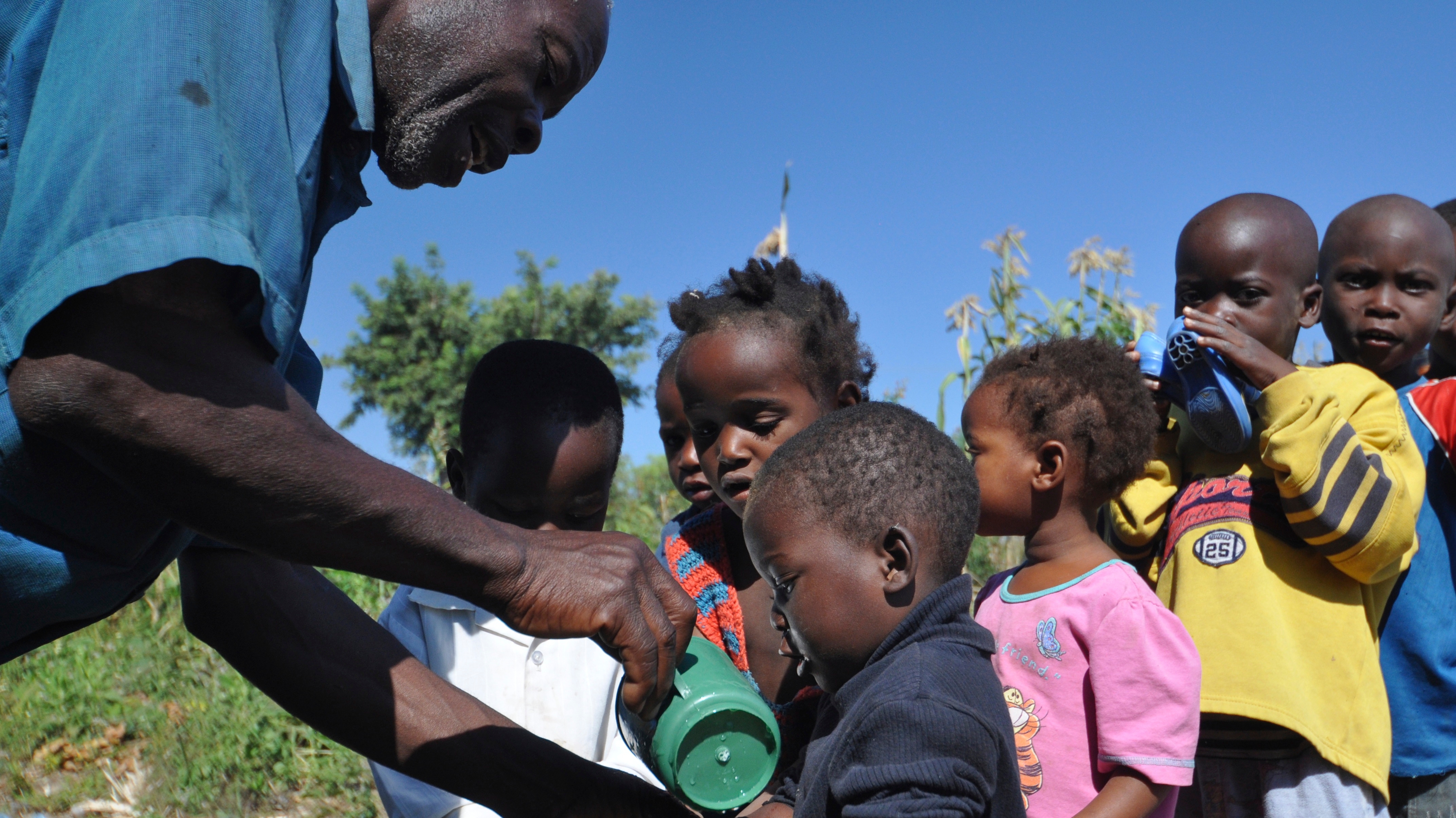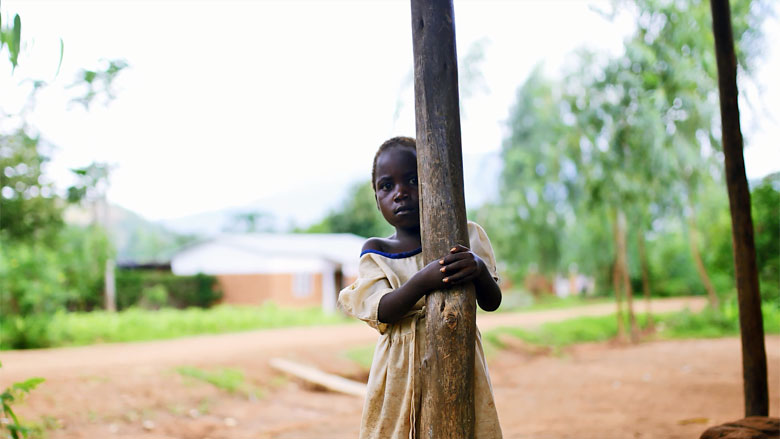| Research area: | Early Childhood Nutrition, Development, and Health |
| Country: | Malawi |
| Evaluation Sample: | 199 child community centers |
| Timeline: | Completed |
| Intervention: | Incentives, training, parental involvement |
| Researchers: | Lia C. H. Fernald, University of California, Berkeley; Patricia Kariger, University of California, Berkeley; Christin McConnell, World Bank; Michelle Neuman, University of Pennsylvania; Berk Özler, World Bank |
| Partners: | Save the Children; Government of Malawi; Rapid Social Response Multi-Donor Trust Fund; Early Learning Partnership |
Problem
Around 50 percent of young children in Malawi suffer from chronic malnutrition, which stunts physical growth and is associated with poor brain development and lasting health problems. The government, with donor assistance, established Community-Based Childcare Centers in the 1990s to promote children’s development. These centers now enroll about a third of the country’s children aged three to five. The quality of the centers, however, is mixed. Most caregivers are young, part-time volunteers without any formal training in early childhood development and turnover is high.
Intervention
A team supported by the Strategic Impact Evaluation Fund joined forces with the Government of Malawi to evaluate the impact of providing play materials and teacher training to community-run childcare centers, and child development classes for local parents.
Evaluation
The control group received only a special UNICEF play and learning kit for use with children. The three treatment groups received the play and learning kit and one of the following interventions: teacher training and mentoring for community center caregivers; teacher training and mentoring along with small monthly cash payments; teacher training and mentoring along with 12 education group sessions for parents on early childhood development.
Evaluation design
Cluster randomized control trial. The evaluation included 199 childcare centers, 310 teachers, 2,009 primary caregivers and 2,120 children.
Results
The evaluation found that after one year, some children showed gains on measures of skills development; but by the time they reached primary school, the gains disappeared. It may be that the centers need additional assistance, or that children can’t continue to thrive in primary schools that may have more than 100 children in a classroom with just one teacher.
Future steps
The evaluation results underscore that there is a lot more to be done to monitor centers and improve them, and that improving primary school education may need to be part of the solution.
Impacts
- Baseline survey: The results of the baseline survey showed that the number of childhood centers that were functioning was much less than what the government had initially thought. This led to a revision in government figures.
- While recognizing that the results of this intervention didn’t show lasting gains, the evaluation showed policymakers the potential benefits of trying to improve quality.
Country: Malawi
Evaluation Sample: 199 child community centers
Timeline: Completed
Intervention: Incentives, training, parental involvement
Researchers: Lia C. H. Fernald, University of California, Berkeley; Patricia Kariger, University of California, Berkeley; Christin McConnell, World Bank; Michelle Neuman, University of Pennsylvania; Berk Özler, World Bank
Partners: Save the Children; Government of Malawi; Rapid Social Response Multi-Donor Trust Fund; Early Learning Partnership
Context
Malawi is struggling to meet the development needs of its children. About half the children under five years old are stunted and almost 20 percent are underweight. In addition, almost one in five children is an orphan, in many cases because parents have died from HIV/AIDS. High food and fuel prices, a devastating earthquake in 2009 and localized droughts exasperate the difficulties faced by poor families.
The government, with donor assistance, established Community-Based Childcare Centers in the 1990s to promote children’s development. These centers now enroll about a third of the country’s children aged three to five. The quality of the centers, however, is mixed. Most caregivers are young, part-time volunteers without any formal training in early childhood development and turnover is high.
As part of Malawi’s Protecting Early Child Development Project, which is supported by the World Bank and the Rapid Social Response Multi-Donor Trust Fund, the Government of Malawi is testing four different low-cost approaches for improving the quality of the childcare centers. The results will help inform plans for a scale up.
Research area: Early Childhood Nutrition, Development, and Health
Country: Malawi
Evaluation Sample: 199 child community centers
Timeline: Completed
Intervention: Incentives, training, parental involvement
Researchers: Lia C. H. Fernald, University of California, Berkeley; Patricia Kariger, University of California, Berkeley; Christin McConnell, World Bank; Michelle Neuman, University of Pennsylvania; Berk Özler, World Bank
Partners: Save the Children; Government of Malawi; Rapid Social Response Multi-Donor Trust Fund; Early Learning Partnership
Context
Malawi is struggling to meet the development needs of its children. About half the children under five years old are stunted and almost 20 percent are underweight. In addition, almost one in five children is an orphan, in many cases because parents have died from HIV/AIDS. High food and fuel prices, a devastating earthquake in 2009 and localized droughts exasperate the difficulties faced by poor families.
The government, with donor assistance, established Community-Based Childcare Centers in the 1990s to promote children’s development. These centers now enroll about a third of the country’s children aged three to five. The quality of the centers, however, is mixed. Most caregivers are young, part-time volunteers without any formal training in early childhood development and turnover is high.
As part of Malawi’s Protecting Early Child Development Project, which is supported by the World Bank and the Rapid Social Response Multi-Donor Trust Fund, the Government of Malawi is testing four different low-cost approaches for improving the quality of the childcare centers. The results will help inform plans for a scale up.

